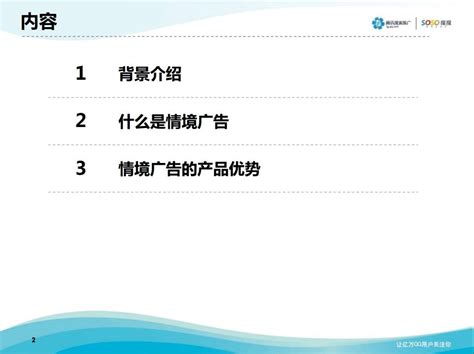您所在的位置:首页 - 百科 - 正文百科
搜搜官网
![]() 溪淳
2024-05-11
【百科】
858人已围观
溪淳
2024-05-11
【百科】
858人已围观
摘要**Title:UnderstandingandLeveragingthePowerofWebScrapinginBusiness**Intoday'sdata-drivenworld,busines
Content Aggregation:
Gathering content from blogs, news sites, and social media aids in content curation and competitive analysis.2.
Terms of Service:
Adhere to the terms of service of the target website to avoid legal repercussions.2.
Use Ethical Scraping Techniques:
Avoid overloading servers with excessive requests or scraping sensitive personal information.
Lead Generation:
Scraping contact information from websites helps marketers build prospect lists and target potential customers.Title: Understanding and Leveraging the Power of Web Scraping in Business
Trend Analysis:
Scraping data from forums, blogs, and social media platforms helps identify emerging trends and consumer preferences.In conclusion, web scraping offers immense potential for businesses to gain valuable insights, automate processes, and stay ahead of the competition. By understanding the fundamentals, adhering to best practices, and navigating legal considerations, organizations can harness the power of web scraping effectively and ethically.
5. Research and Development:
3.
Rotate IP Addresses:
Rotate IP addresses and use proxies to prevent IP blocking and maintain anonymity.2. Finance:
3.
Data Protection Laws:
Be mindful of data protection regulations such as GDPR and ensure compliance when scraping personal data.
Investment Strategies:
Scraping data from financial statements and regulatory filings can inform investment decisions and portfolio management.3. Marketing:
Product Information:
Scraping product descriptions, reviews, and specifications can provide insights for improving product offerings and customer experiences.5.
Monitor Changes:
Regularly monitor scraped data for changes in website structure or content to avoid disruptions.1.
Respect Website Policies:
Check the terms of service and robots.txt file of the target website to ensure compliance with its scraping policies.4. Real Estate:
Best Practices:
1. Ecommerce:
Competitor Analysis:
Researchers use web scraping to study competitors' products, pricing strategies, and customer reviews for benchmarking purposes.Web scraping, also known as web harvesting or web data extraction, is the process of automatically collecting information from websites. This is done by using software to simulate human web browsing and extract desired data from web pages.

In today's datadriven world, businesses across industries are increasingly turning to web scraping as a powerful tool for gathering valuable insights, monitoring competitors, and automating various processes. Let's delve into the fundamentals of web scraping, its applications across different sectors, best practices, and legal considerations.
Legal Considerations:
4.
Contractual Agreements:
If scraping commercial websites, consider entering into licensing agreements or partnerships with the website owners.
Price Monitoring:
Ecommerce businesses can scrape competitor websites to track product prices and adjust their own pricing strategies accordingly.
Property Listings:
Real estate agencies scrape property listings to analyze market trends, identify investment opportunities, and set competitive prices.
Rental Yield Analysis:
Scraping rental data enables landlords to assess rental yields in different areas and make informed decisions.What is Web Scraping?
4.
Handle Errors Gracefully:
Implement error handling mechanisms to handle connection issues, timeouts, and other errors gracefully.
Market Research:
Financial institutions utilize web scraping to gather data on market trends, stock prices, and financial news from various sources.Applications Across Industries:
1.
Copyright Law:
Respect copyright laws by obtaining permission before scraping copyrighted content.Tags: 搜搜官网中文 搜搜就懂你 搜狗引擎搜索 搜搜官网下载 谷歌seo搜索
版权声明: 感谢您对【华丽科普网】网站平台的认可,无特别说明,本站所有文章均归【华丽科普网】平台所有,转载请说明文章出处“来源【华丽科普网】”。 https://jxhualida.com/post/17091.html
上一篇: 海豹kid英文儿歌歌词
下一篇: 新浪教育简介
最近发表
- 湖南卫视连发20条迪丽热巴,背后的故事与深度解读
- 警惕海盗袭击,渔船安全刻不容缓,寻找失踪人员的希望之光
- 广东茂名发生地震,如何应对地震灾害?
- 板凳妈妈,一位温暖人心的离去,享年六十九岁
- 民营企业如何向新而行—探索创新发展的路径与实践
- 四位退休老人因追求额外收入,不慎陷入刑拘困境
- 国家发改委不点名批评背后的深意,汽车产业需自我革新与高质量发展
- 香港歌手李国祥离世,一个时代的落幕与回忆
- 冷空气终于要走了,春天的脚步近了
- 郑州无声餐厅,独特的魅力,引领潮流新风尚
- 李乃文,一支笔的魔法之旅,变出与和伟的无限可能
- 演员喻恩泰凭借眼技惊艳全场,引发广泛热议!
- 婚礼上的小插曲,拉链与闭链的温馨故事
- 缅甸地震,深入解析与理解
- 戚薇二胎产子,温馨画面下的喜悦与成长
- 警惕儿童疾病,一个十岁女孩因高烧去世的背后故事
- 成品油需求变天,市场趋势下的新机遇与挑战
- 用户吐槽小米试驾服务,雷军秒道歉—看小米如何迅速应对客户反馈
- 国资委重磅宣布,对整车央企实施战略性重组
- 罗生门下的悲剧,失踪的清华毕业生已身亡
- 车主遭遇红灯与后车催促,一次日常驾驶中的微妙体验
- 王宝强,真实与演技的交融
- 海南航空对空姐遭乘客偷拍事件的回应,维护安全、尊重隐私与正义的航程
- 提振消费,新举措助力消费复苏
- 文物走红网络时代,年轻人的创意与传承新风尚
- 探索涂料世界的奥秘—走进上海涂料研究所
- 地球脉动的新时代,专家解读我们是否进入了地质活跃期
- 岩石力学与工程学报,探索地壳深处的秘密
- 震中华人店主亲历记,房屋倒塌的瞬间与重建的希望
- 证监会对浙商证券采取责令改正措施,深化理解其背后意义与影响
- 揭秘医药养生保健报,守护您的健康生活
- 揭秘多哈世乒赛器材背后的故事,一场科技与竞技的完美结合
- 大学生思想政治教育,塑造未来社会栋梁的关键一步
- 备孕路上的特殊挑战,一位90后小伙的生蚝大挑战
- 超临界流体萃取技术,让大自然的精华乖乖听话
- 清明五一档,多部影片竞相绽放,谁将成为票房黑马?
- 黎巴嫩首都贝鲁特惊天爆炸,探究背后的真相
- 玩转电脑游戏,攻略在手,轻松通关!
- 深交所修订发布发行承销业务细则详解
- 国际原子能机构,守护全球核安全与和平发展的关键力量
- 林高远练琴之路,勤奋与坚持的力量
- 别无选择2012,生活中的十字路口与我们的决定权
- 王者荣耀遭遇短暂服务中断,游戏回应崩了的背后故事
- 如何撰写优秀的经济管理毕业论文?从选题到完成的全方位指南
- 中方未续牛肉进口合同,美国牛肉厂商遭遇重击的背后故事
- 揭秘苏宁易购的强劲增长,2024年全年盈利同比增长达114.93%
- 出版发行研究,让好书找到对的读者
- 商业健康保险药品咨询与探讨,行业内的声音与未来展望
- 工商管理毕业论文,如何撰写出高质量的研究成果?
- 董宇辉报平安—科技时代的安全守护者


